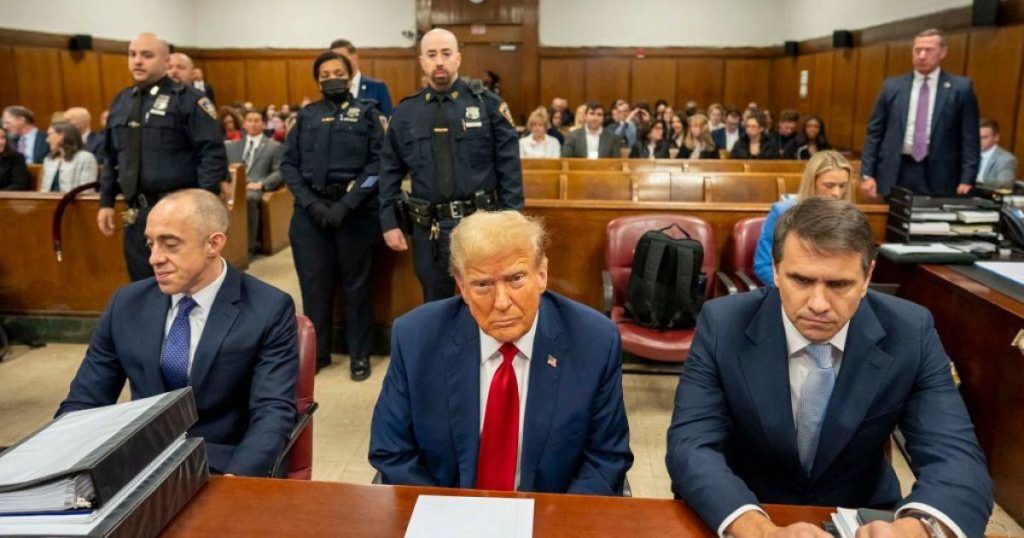David Pecker, former National Enquirer publisher, has been testifying in former President Donald Trump’s New York criminal trial this week. He described a scheme in which he agreed to spend money to purchase the rights to potentially damaging stories about Trump during his 2016 presidential campaign, in order to keep them from being made public, a process known as “catch and kill.” One of these payments was $150,000 to model Karen McDougal, who claimed to have had an affair with Trump in 2006, which Trump denies.
Trump is facing 34 felony counts of falsifying business records related to reimbursements to his former lawyer Michael Cohen, who paid Stormy Daniels to suppress her claim of a sexual encounter with Trump just before the 2016 election. Pecker stated that he had discussions with Cohen about Daniels but refused to purchase her story, telling Cohen, “I am not a bank.” Pecker had already spent $180,000 on previous “catch and kill” stories.
After Trump won the election, Pecker claimed that the president-elect expressed gratitude for securing the rights to the two “embarrassing” stories, referring to the McDougal situation and the “doorman situation.” Pecker recalled Trump thanking him for handling these matters. Under cross-examination, Pecker revealed that he had also been involved in “catch and kill” operations for other famous individuals, such as Arnold Schwarzenegger, Tiger Woods, Mark Wahlberg, and Rahm Emanuel, among others.
Pecker’s testimony will continue on Friday, with the court resuming at 9:30 a.m. He will return to the stand to provide further details about his involvement in the “catch and kill” practice and his interactions with Trump and Cohen. The trial is shedding light on the tactics used to suppress potentially damaging stories about public figures, revealing the inner workings of media and legal arrangements in high-profile cases.
The revelations from Pecker’s testimony highlight the connections between media, politics, and legal maneuvering in cases involving powerful individuals. The practice of “catch and kill” to suppress damaging stories raises questions about transparency, accountability, and the ethical considerations involved in such practices. Pecker’s testimony provides a rare glimpse into the behind-the-scenes efforts to manage public perception and shield influential figures from negative publicity.
As the trial unfolds, the implications for Trump, Cohen, and Pecker remain to be seen. The legal proceedings are drawing attention to the intricate web of relationships and transactions that shape public narratives about prominent figures. The testimony from Pecker offers a unique perspective on the mechanisms used to control information and protect the reputations of individuals in the public eye. The ongoing trial is shaping up to be a significant moment in the intersection of media, politics, and the law.


